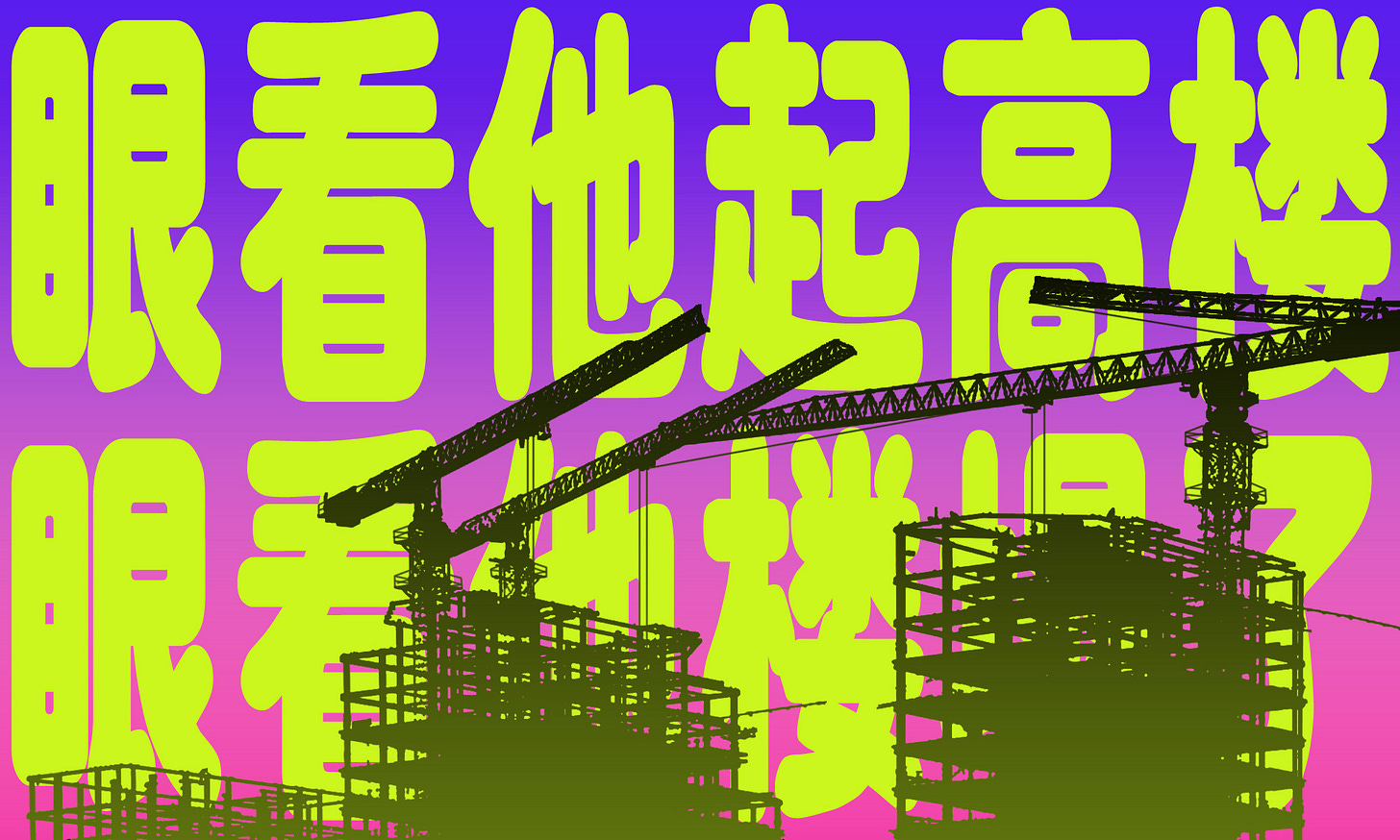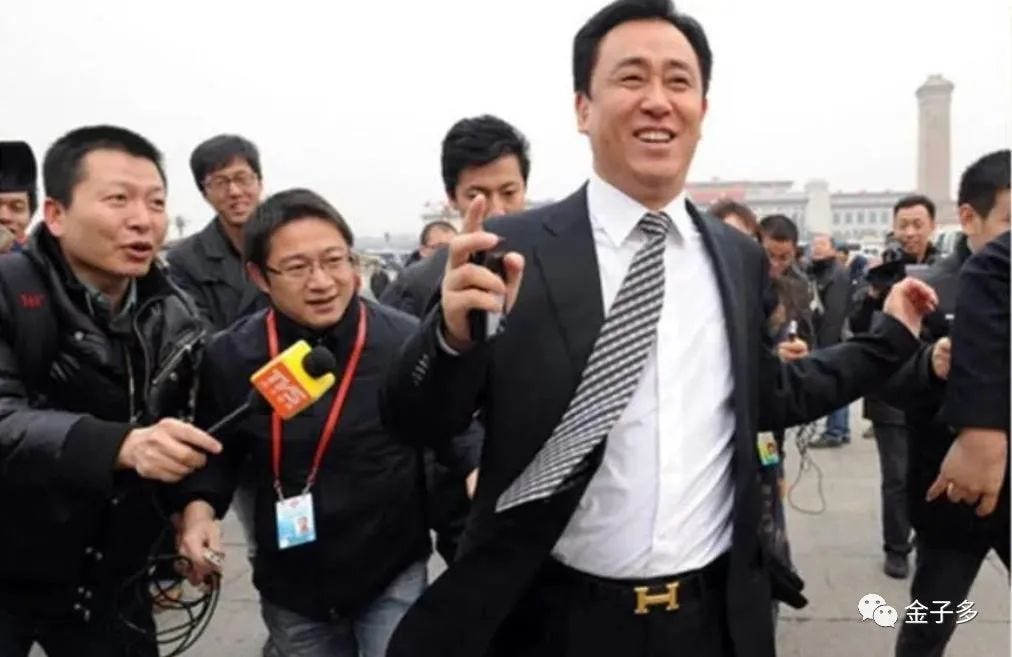Welcome to RealTime Mandarin—a multimedia resource to immerse you in the latest Chinese language trends, inspire you to practice and improve your Mandarin every week, and empower you to communicate with confidence.
Subscribe now to get the next issue straight to your inbox!
The fall of empires has been an obsession of writers, artists, poets, and emperors, throughout Chinese history.
These periods of collapse and instability are fertile ground for artistic output, used to criticise the system and whoever runs it for being corrupt, out of touch, and inept.
Some of the most important works of Chinese literature are products of the fall of dynasties such as the Ming, the Qing, and the Han.
One of the most famous Chinese literary quotes is about empire collapse:
The empire, long divided, must unite; long united, must divide. Thus it has ever been.
天下大势 分久必合 合久必分
This is the first line of The Romance of the Three Kingdoms (三国演义), a 14th-century historical novel, and one of ‘China’s four classics’, set in the turbulent years towards the end of the Han dynasty around the second century AD.
For the language learner, Romance of the Three Kingdoms and many other novels, poems, and histories, are a glimpse into the perpetual churn of emperors and empires, and how the people of that time express their discontent towards their leaders.
These metaphors are still alive today, used to criticise those who rule China now, or people who have power and influence in the country, such as entrepreneurs and celebrities seen as out of touch and corrupt.
Empires continue to rise and fall in China today: Business empires, where huge fortunes have been amassed over the last forty years of reform, centred around one entrepreneur who sits at the centre of his family network, accumulating massive amounts of wealth, power, and influence.
In a way, these empires may be like the Chinese empires of old: Families trying to preserve their own wealth, power, and survival.
Xǔ Jiāyìn 许家印, the founder and chairman of Chinese property giant Evergrande 恒大集团 (héngdà jítuán), is one of those emperor-like figures.
The 64-year old Xu rose from a humble upbringing. By 2017, he had topped the list of Asia's wealthiest people with an estimated fortune of $42.5 billion.
He founded Evergrande in 1996 in Guangzhou. It's now the world’s most indebted property developer, with over $300bn (£245.4bn) in debt.
This week, Evergrande confirmed that Xu is suspected of crimes by Chinese authorities and was placed under "mandatory measures":
From 2020 onwards, Xu and Evergrande have been in crisis. After two years of "rescue", finally, on the 28th of September 2023, Xu Jiayin was arrested for suspected crimes, and placed under mandatory measures.
从2020年开始,许家印和恒大深陷债务危机。经过两年多的“抢救”之后,最终,在2023年9月28日,许家印因涉嫌违法犯罪,被依法采取强制措施。[2]
Discussions about his downfall are rich in historical references, evoking portrayals of fallen empires:
I saw him build a high tower, I saw him feast and make merry, but I saw, too, how his tower collapsed.
Evergrande's "tower" has truly collapsed this time.
In recent days, the biggest story in the real estate circle is that Xu Jiayin’s inevitable demise has finally arrived.
眼看他起高楼、眼看他宴宾客、眼看他楼塌了。
恒大的“楼”,这次是真塌了。
最近几天,地产金融圈最大的热点就是许家印实锤靴子落地。
This is a line from The Peach Blossom Fan (桃花扇 táohuā shàn), a musical play and historical drama by the early Qing dynasty playwright, Kǒng Shàngrèn 孔尚任 in 1699.
He and other playwrights at the time were fascinated with how and why the Ming fell, and what the rulers of the Qing could learn from it.
The metaphor of the falling tower (楼塌) of the Ming is likened to Evergrande's empty, half-built, and crumbling tower blocks, known as 烂尾楼 làn wěi lóu, in cities across China.
Some observers note that Xu’s fate was predicted in another phrase, a couplet (对联), which Xu was pictured with during a visit to his hometown in 2018:
Wealthy and prosperous like blooming peonies (which wither quickly),
A long life like pine trees and cranes.
牡丹富贵,松鹤长寿
In other words, an obsession with excess, wealth, fame, and luxury will get you in trouble sooner or later.
Back in 2018, Xu probably thought he was too big to fail. But he forgot that in Chinese it can also be the other way round:
因大而倒 - Fall because of being too big, or, too big not to fail!
So that's what we explore this week: The language of empire collapse from China's history, including works by Tang poets, Du Fu 杜甫, and Bai Juyi 白居易, and how these metaphors still being used today.
Favourite Five
1. 流芳百世 liú fāng bǎi shì
to be remembered for generations, to leave a lasting reputation
有一次他喝高了,酒酣之际,豪情大发,掷杯而起,问左右:“我许家印,怎样才能流芳百世呢?- One time, when he was drunk and in high spirits, he raised his glass and asked: "How can I leave a lasting reputation for the Xu family?" [1]
Related:
青史留名 qīngshǐ liú míng - to have one's name recorded in history
遗臭万年 yí chòu wàn nián - to leave behind a foul odour for ten thousand years
2. 靴子落地 xuē zi luò dì
the other boot has hit the ground; something inevitable has finally happened
最近几天,地产金融圈最大的热点就是许家印实锤靴子落地 - In the past few days, the biggest topic in the real estate circle has been the inevitable confirmation of Xu Jiayin's guilt. [1]
3. 踩缝纫机 cǎi féng rèn jī
to step on a sewing machine; doing time in jail
说不定这个中国第一富豪和他的二儿子,可能很快就会进去踩缝纫机了 - It's possible that the richest person in China and his second son might soon find themselves in prison. [1]
4. 空手套白狼 kōng shǒu tào bái láng
to try to make a fortune by deceiving or taking advantage of others
想想吧,在中国想空手套白狼,不说老百姓不答应,就是政府也不允许。钱和人,都必须留下 - Just think about it, trying to make a fortune by deceiving others is not acceptable in China, and neither the people nor the government will allow it. Xu and his money must stay in China! [1]
5. 眼看他起高楼,眼看他楼塌了 yǎn kàn tā qǐ gāo lóu, yǎn kàn tā lóu tā le
The higher they fly, the harder they fall
眼看他起高楼、眼看他宴宾客、眼看他楼塌了。恒大的“楼”,这次是真塌了 - I saw him build a high tower, I saw him feast and make merry, but I saw, too, how his tower collapsed. Evergrande's "tower" has truly collapsed this time.
Consuming the Conversation
Useful words
6. 海龟 hǎi guī
sea turtle, Chinese students who have studied abroad and returned to China
二儿子许滕鹤,哈佛海龟,恒大地产集团副总裁,曾主导恒大财富的工作 - The second son, Xu Tenghe, a Harvard-educated sea turtle, is the Vice President of Evergrande Real Estate Group and used to lead Evergrande Wealth. [1]
Note: The word for "turtle" (海龟) sounds the same as "returned to China from overseas" (海归).
7. 衰败 shuāi bài
decline or downfall, the deterioration of one's success or fortune
许家印的成功与衰败,和中国过去十几年房地产行业的发展轨迹有很大关系 - Xu Jiayin's success and decline are closely linked to the development of China's real estate sector over the past decade. [2]
8. 爆雷 bào léi
thunder; to suffer a financial crisis or default
之所以没有爆雷,是因为其新业务的良好,利润和银行贷款能覆盖住负债 - The reason there was no financial crisis is that their new businesses were doing well, and the profits, along with bank loans, could cover their debts. [2]
9. 坑害 kēng hài
to deceive or harm, someone taking advantage of or causing harm to others
给被他坑害的机构和个人一个交代 - Provide an explanation to the companies and individuals who were deceived or harmed by him. [2]
10. 掂量 diān liang
to weigh or consider carefully, suggest thinking deeply about a decision or action
其他和恒大类似想转移资产的企业,也要掂量掂量 - Other companies similar to Evergrande that want to transfer their assets should also carefully consider their options. [2]
11. 窟窿 kū long
hole or pit; something substantial or valuable has been lost
胆子大,脾气大,盘子大,面子大,最终变成了窟窿大 - With boldness, a bad temper, a big appetite, and a desire for face-saving, it eventually turned into a big hole. [3]
Three-character phrases
12. 富二代 fù èr dài
second-generation rich, the children of wealthy individuals who inherit substantial wealth
为自己的儿子设立了一个金额高达23亿的单一家庭信托基金,被称为许家印给他儿子的“富二代保护计划” - He set up a single-family trust fund with an astonishing amount of 2.3 billion for his son, known as Xu Jiayin's "Second-Generation Wealth Preservation Plan." [1]
13. 烂尾楼 làn wěi lóu
unfinished or abandoned building, a construction project that has been left incomplete















